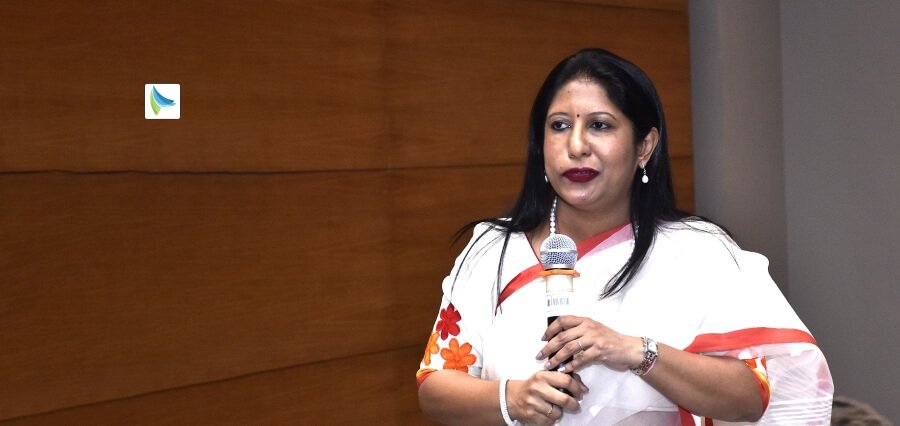Leaders who possess both vision and tenacity are not common in a world where cyber-attacks are gaining the upper hand over traditional defenses. Mike Crandall, CEO of Digital Beachhead, is an individual whose journey is shaped through decades of military life, entrepreneurial resilience, and a steadfast commitment to protect small and medium businesses, the most overlooked of the digital world. Security has always been for Crandall not an issue of encryption and firewalls but one of service, trust, and building futures.
His integrity as a cybersecurity professional and his voice as an author and mentor to the next generation are what make him different. He writes and speaks about the goal of guiding young adults into successful careers and lives, particularly those struggling with ambiguity. His “crawl, walk, run” approach forms the basis of his philosophy, used from business strategy to leadership development and presenting a challenge to would-be leaders to emphasize progress rather than perfection.
He is still combining military discipline and people leadership as the head of Digital Beachhead today, pushing employees as well as readers to perceive challenges as opportunities to develop. In doing so, Crandall is modeling an exemplary mode of leadership which protects futures as well as networks.
A Different Kind of Service
That community, Crandall discovered, was the underserved small and medium-sized business (SMB) sector. After reviewing the cybersecurity landscape, he found that while most companies focused on enterprise-level clients with deep pockets, smaller businesses often the backbone of local economies—were left to fend for themselves in an increasingly dangerous digital world.
Digital Beachhead was born from this revelation, but not without its own journey of adaptation and growth. Like many startups, the company began with a focused vision that evolved with market realities. Initially, Digital Beachhead concentrated solely on winning Department of Defense and other government contracts a natural fit given Crandall’s military background. However, when growth proved slower than anticipated, the company made its first strategic pivot.
“When we realized that the effort to maintain, continue to win and grow was slower than we had hoped, the company pivoted into supporting companies working with those agencies to become more cybersecure based on the NIST 800-171 requirements levied on them.” he recalls. This shift proved prescient, as businesses working with government agencies increasingly found themselves subject to stringent cybersecurity requirements they were ill-equipped to meet.
The Crawl, Walk, Run Philosophy
What sets Digital Beachhead apart in the crowded cybersecurity market isn’t just its focus on SMBs, but its approach to serving them. Crandall and his team operate on what he calls a “crawl, walk, then run mindset,” understanding that smaller companies face genuine financial constraints that can’t be wished away with one-size-fits-all solutions.
“Starting small ourselves, I understood the financial limitations that companies face. It isn’t about solving all the challenges upfront but building a plan to work towards a deeper cybersecurity solution as the company grows.” Crandall explains.
This philosophy reflects Crandall’s military training, where incremental progress and adaptive strategies often mean the difference between mission success and failure. Rather than overwhelming clients with comprehensive (and expensive) security overhauls, Digital Beachhead works to uncover the best possible solutions within existing budgets, creating roadmaps for enhanced security as businesses grow and mature.
Leadership Through Example
Crandall’s leadership style stands out in an industry often characterized by technical expertise divorced from human understanding. His approach is deeply rooted in his military experience, where leadership meant more than just giving orders it meant inspiring others to excel beyond what they thought possible.
A recent example perfectly illustrates this philosophy in action. When Digital Beachhead became an Authorized Cybersecurity Maturity Model Certification (CMMC) Third Party Assessment Organization (C3PAO), the certification process required multiple courses and two challenging exams for team members to become CMMC Certified Assessors (CCA). Rather than simply directing his team to complete the requirements, Crandall took the same courses and exams himself.
It wasn’t for the purpose of conducting assessments, but rather because he understood the challenge of becoming certified and wanted his team to know he was with them on the journey. When a team believes in their leader, sees that he is willing to get in the trenches and take on the hard things alongside them, they tend to work harder and gain confidence in themselves to excel in everything they do.
This distinction between management and leadership is crucial to understanding Crandall’s approach. “I think many leaders provide management which, to me, is not leadership. Managers direct their teams to achieve tasks and expect results, where leaders inspire their teams to achieve not just tasks but to excel in everything they do. Results are achieved based on the team’s desire to perform and not the requirement to perform.” he observes.
Navigating an Ever-Evolving Landscape
The cybersecurity industry is perhaps one of the most rapidly evolving sectors in technology, with new threats emerging as quickly as solutions are developed. Digital Beachhead’s ability to adapt has been tested multiple times, and each challenge has led to strategic expansion rather than just pivoting.
After establishing a rhythm in supporting government contractors, the company expanded to work with manufacturers and medical technology companies, helping them develop enhanced cybersecurity strategies. Most recently, Digital Beachhead returned to its roots by becoming an assessment organization for the Department of Defense within the CMMC ecosystem, a move that required the company to undergo the same rigorous assessment process it now provides to clients.
Crandall notes with evident pride that currently fewer than 80 companies have successfully completed the requirements to become an assessment organization. He explains that the Department of Defense has recently implemented the requirement for any organization wishing to bid on contracts to pass an assessment and obtain CMMC certification. At present, it is estimated that more than 50,000 organizations will need this certification.
Addressing Tomorrow’s Challenges Today
Looking ahead, Crandall sees cybersecurity challenges that keep pace with technological advancement and sometimes outrun it. The emergence of AI, quantum computing, and advanced automation presents both opportunities and threats that require constant vigilance and adaptation.
“Cybersecurity threats seem to change at the speed of light while tools to protect systems lag behind, AI has helped bad actors create more authentic-looking attacks but also helps cyber defenders more rapidly find patterns in the data to identify attacks. Quantum computing will bring a whole new level of cybersecurity attacks as our basic encryption systems in use now will become obsolete.” he observes.
His perspective on these emerging technologies reflects the pragmatic realism of someone who has seen technological shifts throughout his career. Data that currently takes years to decrypt could be compromised in hours or minutes with quantum computing capabilities. The solution, Crandall argues, isn’t to fear these advances but to maintain the agility to adapt defenses as quickly as threats evolve.
“As with most new technologies, we often build the cybersecurity far too late and leave ourselves at risk while defense technologies try to keep pace, whether it is AI, quantum computing, or the next ‘new’ technology to come, we must work diligently to keep pace and develop new cybersecurity abilities to match.” he warns.
Building the Next Generation
Perhaps nowhere is Crandall’s commitment to service more evident than in Digital Beachhead’s approach to addressing the cybersecurity talent shortage. Rather than simply competing for existing talent, the company has developed an internship program that bridges the gap between newly trained cybersecurity personnel and the ecosystem’s need for experienced technicians.
“By accepting interns in this manner, we can build them into a great team member for ourselves or have them as a great new resource for other cybersecurity companies we partner with. Being a good community member, we hope, attracts not only the newly trained but the experienced workforce as well.” Crandall explains.
The company also works directly with Department of Defense transition programs, helping military personnel find civilian cybersecurity careers a natural extension of Crandall’s own journey from military service to private sector leadership.
Purpose-Driven Mission
What emerges from conversations with Crandall is a leader who sees cybersecurity not merely as a business opportunity but as a mission critical to national and global security. His team shares this perspective, viewing their work as part of a larger effort to deter cybercriminals and protect not just individual clients but the broader digital infrastructure we all depend on.
“Our team believes in the mission of providing cybersecurity not only to protect our clients but in the greater picture to help protect our nation and the nations of our clients. We do not see cybersecurity as just a job or a service we provide but view it as a purposeful mission to deter cybercriminals in achieving their goals.” he explains.
This sense of purpose extends to Digital Beachhead’s client relationships, which Crandall describes as partnerships rather than traditional vendor relationships. The company often provides business connections and opportunities beyond cybersecurity services, viewing client success as inseparable from their own.
Crandall often emphasizes that they are not just a service provider but a member of their clients’ team. He takes this ideal seriously, believing that his personal sense of success comes only through the success of his team and his clients.
Legacy and Looking Forward
As cybersecurity threats continue to evolve and multiply, Crandall’s vision for success remains remarkably human-centered. Success, to him, isn’t measured by market share or revenue alone, but by the professional and personal growth of his team and the security achievements of his clients.
“Success is not something I place an endpoint to. Success to me is seeing the Digital Beachhead family grow professionally, personally, and that the team finds their own individual successes achieved. My success is their success; their success is the company’s success.” he reflects.
For the next generation of cybersecurity leaders, Crandall’s advice is characteristically straightforward: “Lead from the front and move forward, always forward. Mistakes can and will happen, but if we look at our failures as simply steppingstones to success, we maintain that positive forward momentum. Trust in yourself and trust in your team. If you can find a way to inspire them to excel, they will do just that.”
In an industry often focused on the technical complexities of digital threats, Mike Crandall stands out as a leader who never loses sight of the human element—both in the teams he leads and the communities he serves. His work at Digital Beachhead represents more than just another cybersecurity company; it’s a mission to democratize digital security and build a more resilient future for businesses of all sizes.
As cyber-attacks increasingly target smaller, less secure organizations as entry points to larger companies, Crandall’s vision of affordable cybersecurity for the SMB community takes on strategic importance far beyond individual client relationships. By protecting the digital beachhead of small and medium businesses, he and his team are contributing to the security of the entire digital ecosystem one client, one assessment, and one successful defense at a time.
Read Also: Top Leaders Leading Cybersecurity Industry in 2025














